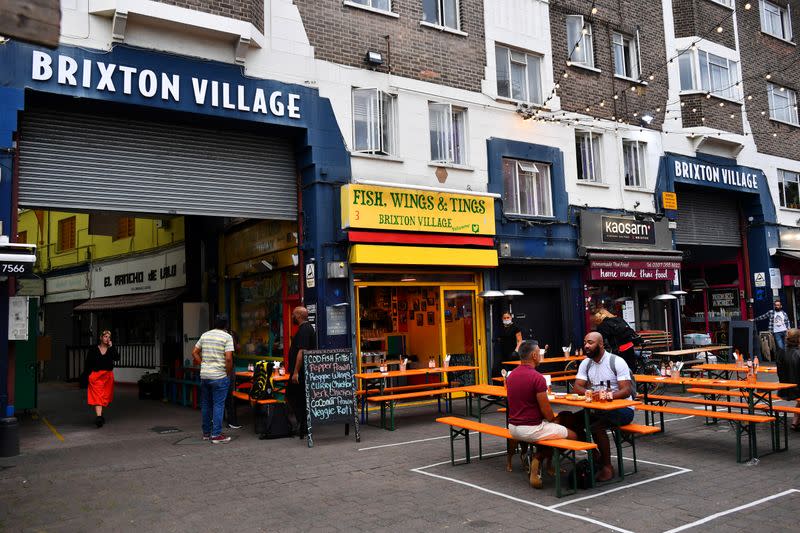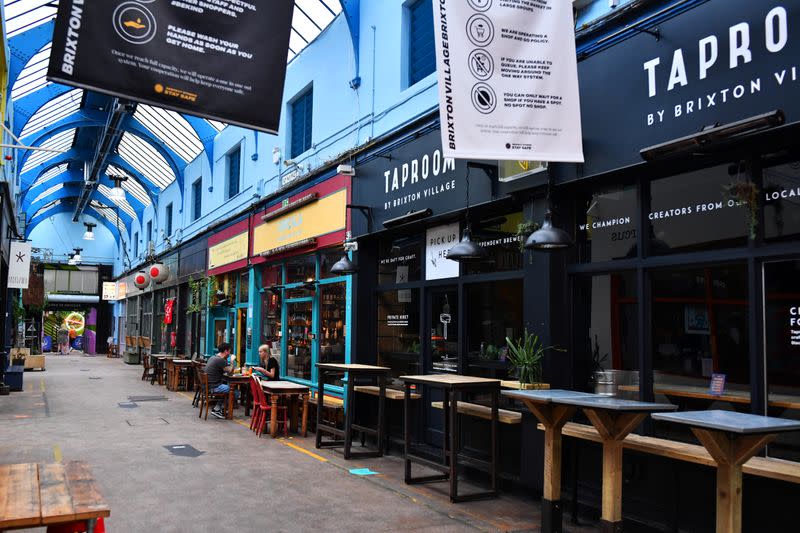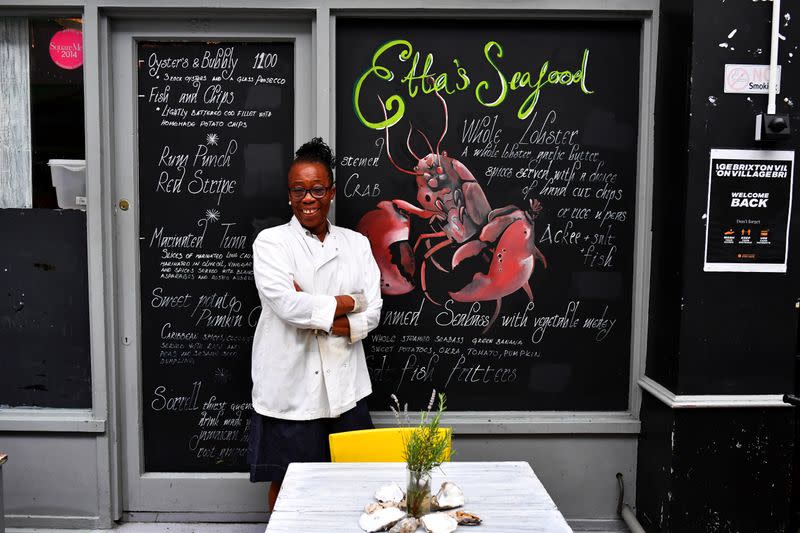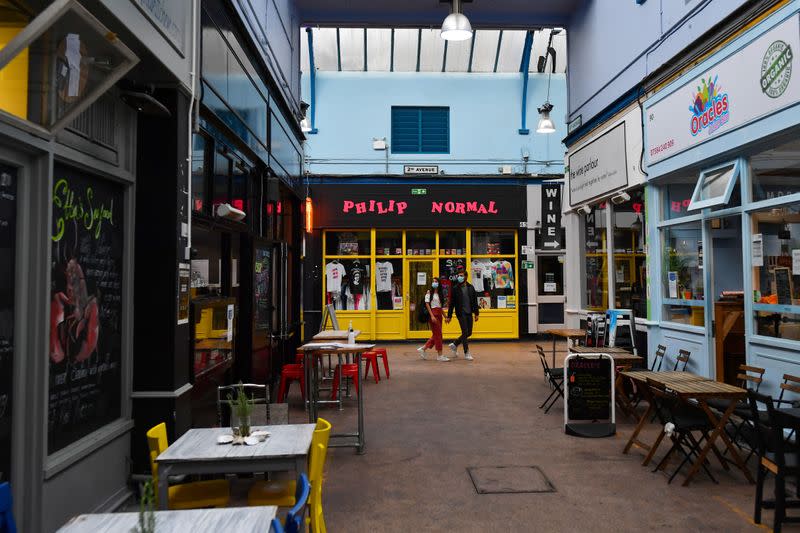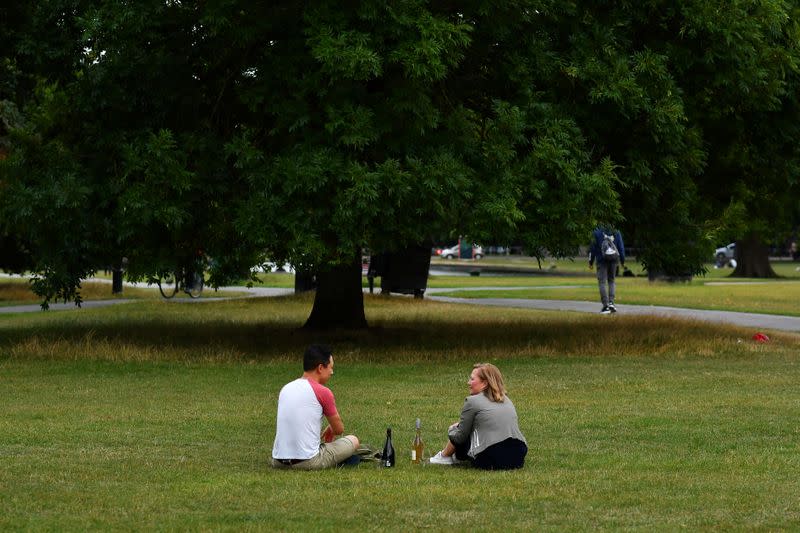London restaurants fret as going out goes out of style
By Natalie Thomas and Dylan Martinez
LONDON (Reuters) - Restaurants might have reopened, but the owner of Etta's Seafood Kitchen in London's Brixton Village market fears the prolonged COVID-19 lockdown may have changed customer behaviour for good.
Trepidation among consumers in England since the hospitality sector reopened on July 4 has seen many owners wonder whether they will go out of business before the punters come back.
"I think people's habits have changed. I think a lot of people as well are cooking more at home. And I just think, you know, everyone is still a little bit scared because I don't know exactly what's going to happen," Etta Burrell, owner of the seafood kitchen, told Reuters.
"It's quite affecting us at the moment. It's worrying, put it that way."
Brixton Village is usually bustling with people eating out, especially at the weekend. But with social distancing restricting customer numbers at peak times, business owners need to fill more tables earlier in the week.
And there is little sign of that happening, despite the exhortations of Prime Minister Boris Johnson for people to get out, spend, and "enjoy summer safely".
It is too early for much data on footfall in restaurants and bars since they were allowed to reopen.
The latest weekly British Retail Consortium bulletin, which captures July 4 but no later, shows UK footfall posted the smallest week-on-week rise for any day that week when lockdown was eased.
Burrell said she had 30% of the customers at the weekend, compared to the same time last year, but just 7% of the business on a Tuesday night.
It is perhaps unsurprising that consumers are cautious. A poll by Opinium on the day restrictions were lifted showed 52% of people believed pubs, bars and restaurants were reopening too soon. Only 24% thought it was the right time.
OVERCAPACITY
The casual dining sector had been suffering from overcapacity even before the pandemic shuttered businesses and slashed footfall in London's busiest work districts.
High-street fixtures like Carluccios and the owner of Bella Italia and Cafe Rouge have entered administration since the pandemic began.
In a bid to get more people through restaurant doors at off-peak times, the government has launched a $625-million "Eat out to help out" discount scheme, offering half-priced meals from Monday to Wednesday in August.
On Wednesday, a cut to sales tax to 5% from 20% for eat-in or hot takeaway food from restaurants, cafes and pubs also came into effect.
Brian Danclair, owner of Caribbean restaurant Fish, Wings and Tings, said while it was empty on a quiet Tuesday night after the excitement of the first week of reopening, he was confident government measures would help customers come back.
"We're going to sign up for it because I think it's a really good initiative," he said of the discount scheme. "And that should help bring the consumers' confidence back."
Office for National Statistics data on Thursday showed fewer British workers lost their jobs in June and there were other signs that the hit to the labour market had eased off since the onset of the coronavirus crisis, but economists said unemployment remained on course to jump.
(Writing by Alistair Smout; Editing by Guy Faulconbridge and Janet Lawrence)

 Yahoo Finance
Yahoo Finance 